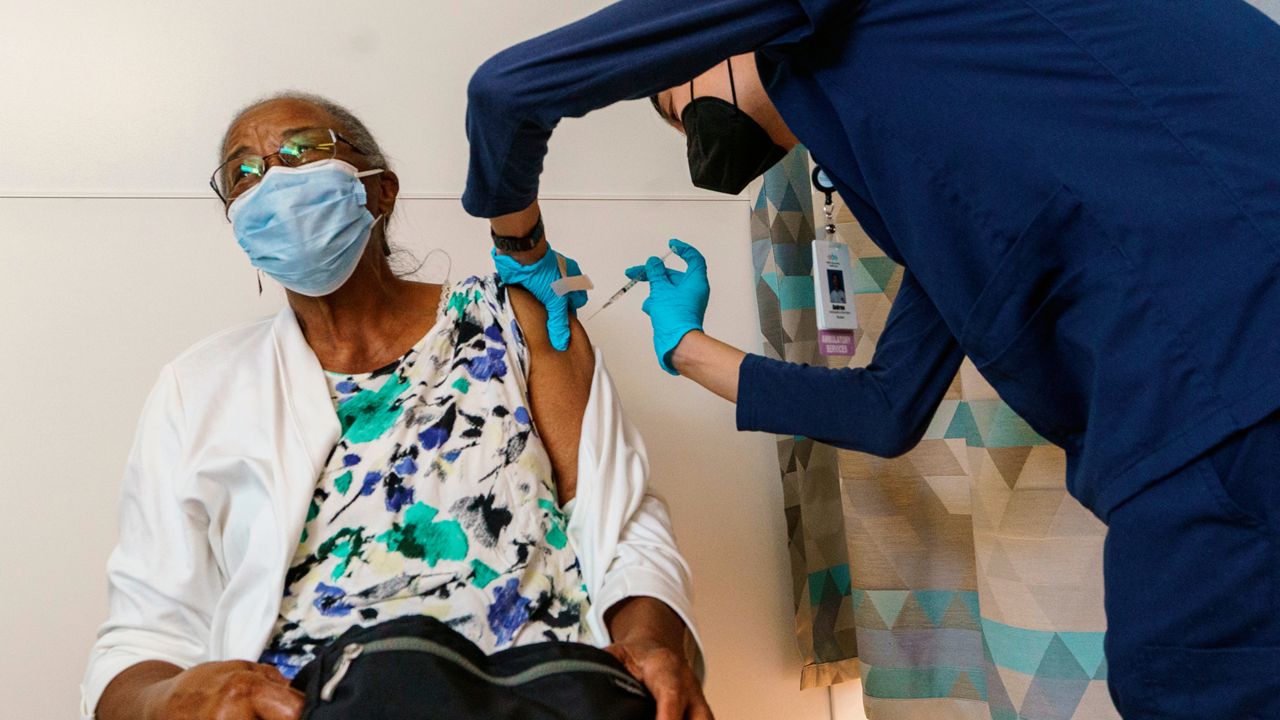Pfizer-BioNTech is expected to seek authorization from federal health regulators for a second booster dose of its COVID-19 vaccine for adults 65 and older, sources familiar with the decision told The Associated Press.
News of the decision was first reported by The Washington Post.
In order to provide maximum protection, a fourth dose would be added to the current COVID-19 vaccination series – which consists of two doses of the mRNA vaccine administered weeks apart as a primary regimen, plus a booster dose months later.
“We’re continuing to collect and assess all available data and we’re in continuous, open dialogue with regulators and health authorities to help inform a COVID-19 vaccine strategy as the virus evolves,” Pfizer spokesperson Jerica Pitts told the AP.
The development comes days after Pfizer CEO Albert Bourla said that a fourth dose of a coronavirus vaccine is needed to keep people protected against COVID-19.
“The way that we have seen, it is necessary, a fourth booster right now,” Boula told CBS' "Face the Nation" on Sunday. "The protection that you are getting from the third, it is good enough, actually quite good for hospitalizations and deaths. It’s not that good against infections, but doesn’t last very long. But we are just submitting those data to the FDA and then we will see what the experts also will say outside Pfizer."
With COVID-19 cases finally plummeting after the intense omicron surge, public health experts are starting to look ahead to what next steps might be needed — if a new variant crops up or, barring that, whether to try shoring up coronavirus protection in the fall at the same time people get flu vaccinations.
The U.S. booster campaign was based on evidence that the shots’ effectiveness, especially against milder infections, was waning about six months after the last dose. Calls for a third shot grew once it became clear the vaccines weren’t as strong against the omicron mutant as they were against earlier versions of the virus.
Many scientists say the ultimate goal of vaccination is to prevent severe illness, and early CDC data show the shots still are doing that. During the omicron wave, effectiveness against hospitalization was 91% in people who had gotten their booster two months earlier, and 78% by the fourth month after that booster.
Currently in the U.S., a fourth dose is recommended only for people with severely weakened immune systems, who need three doses to begin with for the best chance at any protection.
Israel already has offered a fourth dose to people age 60 and older and to some health care workers, and scientists have reported mixed early results that leave unclear just how much benefit the extra shot offered.



